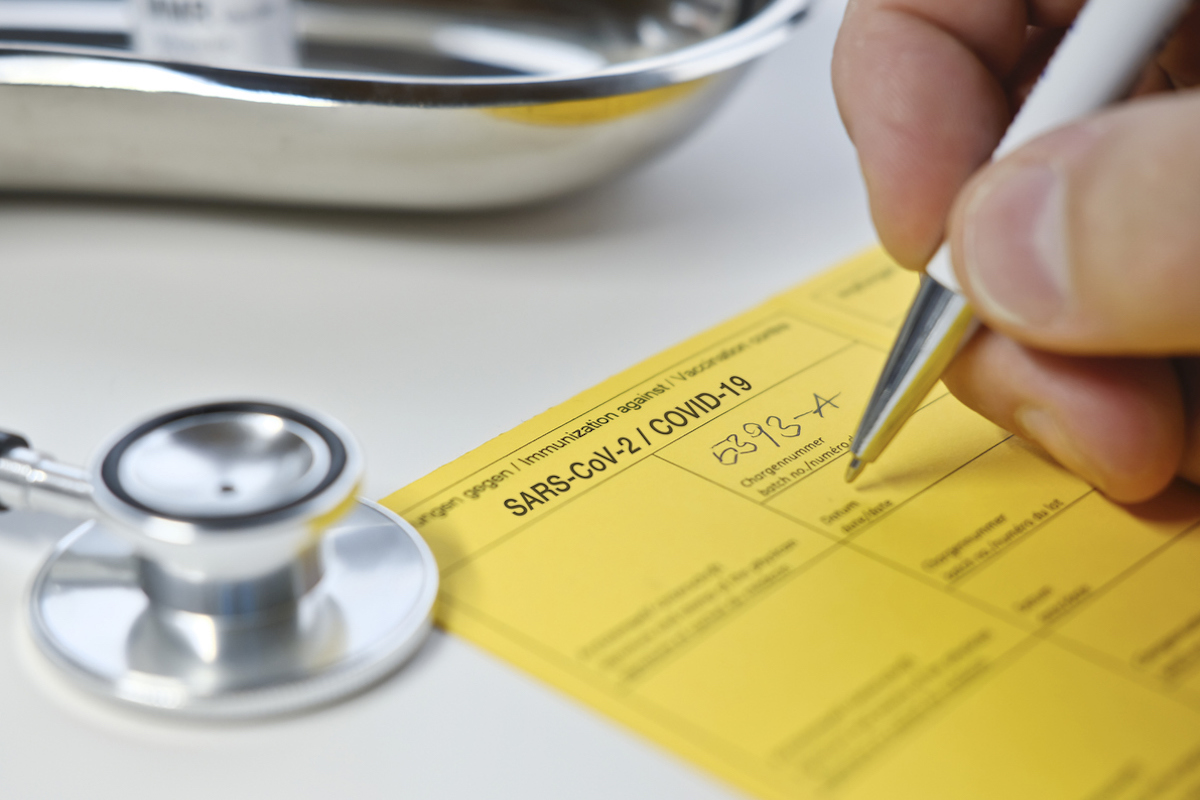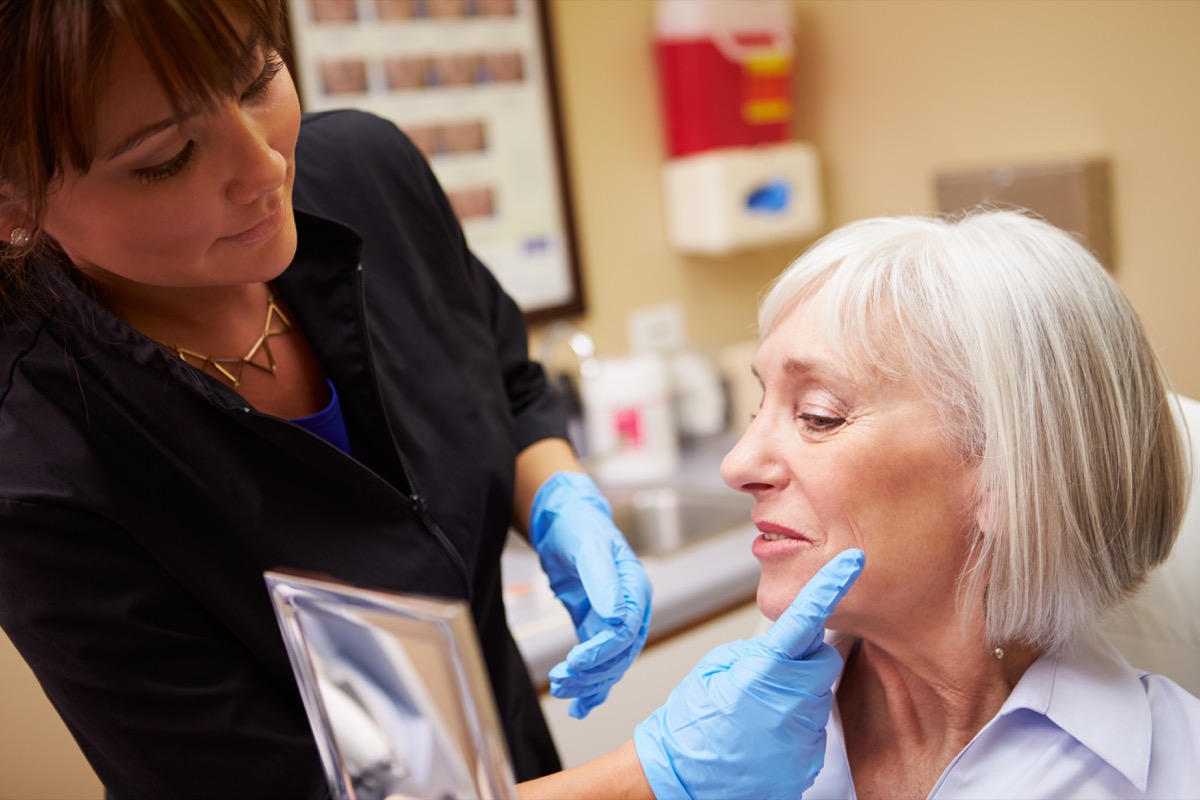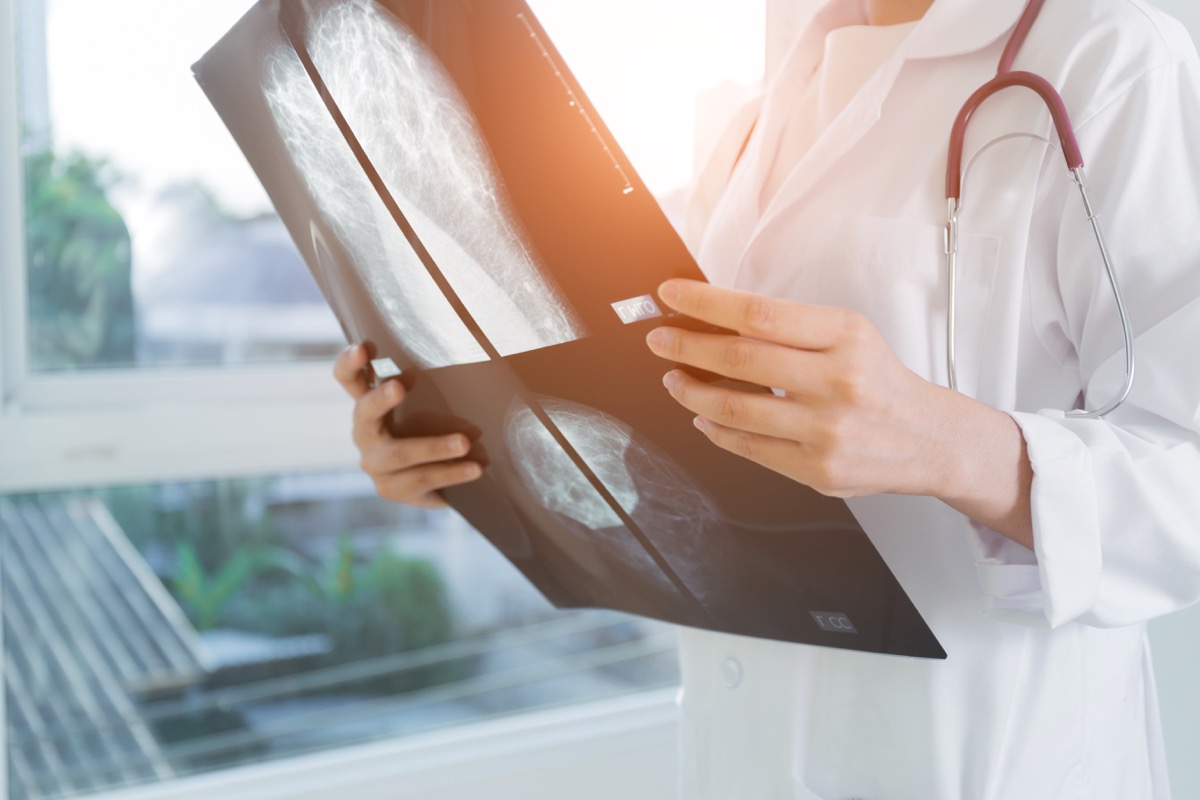On Feb. 19, the CDC added guidance titled, “What Older Adults Need to Know about COVID-19 Vaccines,” to its website. In addition to tips on how to get a vaccination and what to expect in terms of side effects, the agency added a “Scam Alert” warning. The CDC warns that people should never pay for their vaccine before receiving it. The vaccine is free to people living in the U.S., so if anyone asks for reimbursement, you should be wary. “If anyone asks you to pay for access to vaccine, you can bet it’s a scam,” reads the agency’s guidelines. Additionally, the CDC warns against sharing “personal or financial information if someone calls, texts, or emails you promising access to the vaccine for an extra fee.” However, the CDC does note that the vaccination provider may bill your insurance for the cost of administering the shot, but “no one can be denied a vaccine if they are unable to pay this cost.” To ensure you’re not scammed, make sure you don’t pay anything for your shot upfront. If there are any costs on the administrator’s end, they will go through your insurance. There are a couple more essential dos and don’ts to keep in mind before and after you get the vaccine. To see what health agencies and experts have advised, read on, and to see what you shouldn’t do with your second shot, check out The CDC Says Don’t Do This With Your Second Dose. While it may seem helpful to take a couple of over-the-counter pain relievers, such as acetaminophen and ibuprofen, in anticipation of potential side effects from the vaccine, experts warn against it. The CDC guidelines say, “It is not recommended you take these medicines before vaccination to try to prevent side effects, because it is not known how these medications may impact how well the vaccine works.” However, the CDC notes that you can take these pain relievers after your vaccination as needed. And for more up-to-date COVID news delivered straight to your inbox, sign up for our daily newsletter. You may be eager to share the exciting news of your vaccination with your friends and family on social media, but experts have advised against posting your immunization card. The Better Business Bureau (BBB) warned that the information on your card—which includes your full name, date of birth, and where you received the dose—can make it easy for someone to steal your identity. Additionally, the BBB said scammers in the U.K. have also been selling counterfeit copies of vaccination cards. And to make sure you’re aware of one sneaky symptom, check out If You’re Over 65, You Could Be Missing This COVID Symptom, Study Says.ae0fcc31ae342fd3a1346ebb1f342fcb Hold off on getting any facial injections before your COVID vaccine, seeing as the fillers could cause an adverse reaction. A report by the U.S. Food and Drug Administration (FDA), presented to the Vaccines and Related Biological Products Advisory Committee (VRBPAC), detailed multiple occasions when vaccine recipients experienced swelling as a side effect after getting cosmetic filler injected into their cheeks or lips between two weeks to six months prior to their vaccination. To learn about another thing you should avoid before and after your shot, check out The CDC Says Don’t Do This Within 2 Weeks of Your COVID Vaccine. Swollen lymph nodes, also known as lymphadenopathy, can occur as a result of the COVID vaccine. That’s because the vaccine activates immune cells in your lymph nodes and seeing as the ones near your armpit are typically the closest to your injection site, they tend to swell up first. As a result, the Society of Breast Imaging released a statement saying this side effect could mimic a sign of breast cancer and easily raise concern. They advise that people should wait to schedule their mammogram appointment “four to six weeks following the second dose of a COVID-19 vaccination” unless they need urgent medical attention. To see what you can finally do once you’ve gotten your shot, check out Dr. Fauci Says It’s Safe for You to Do This Once You’re Vaccinated.



